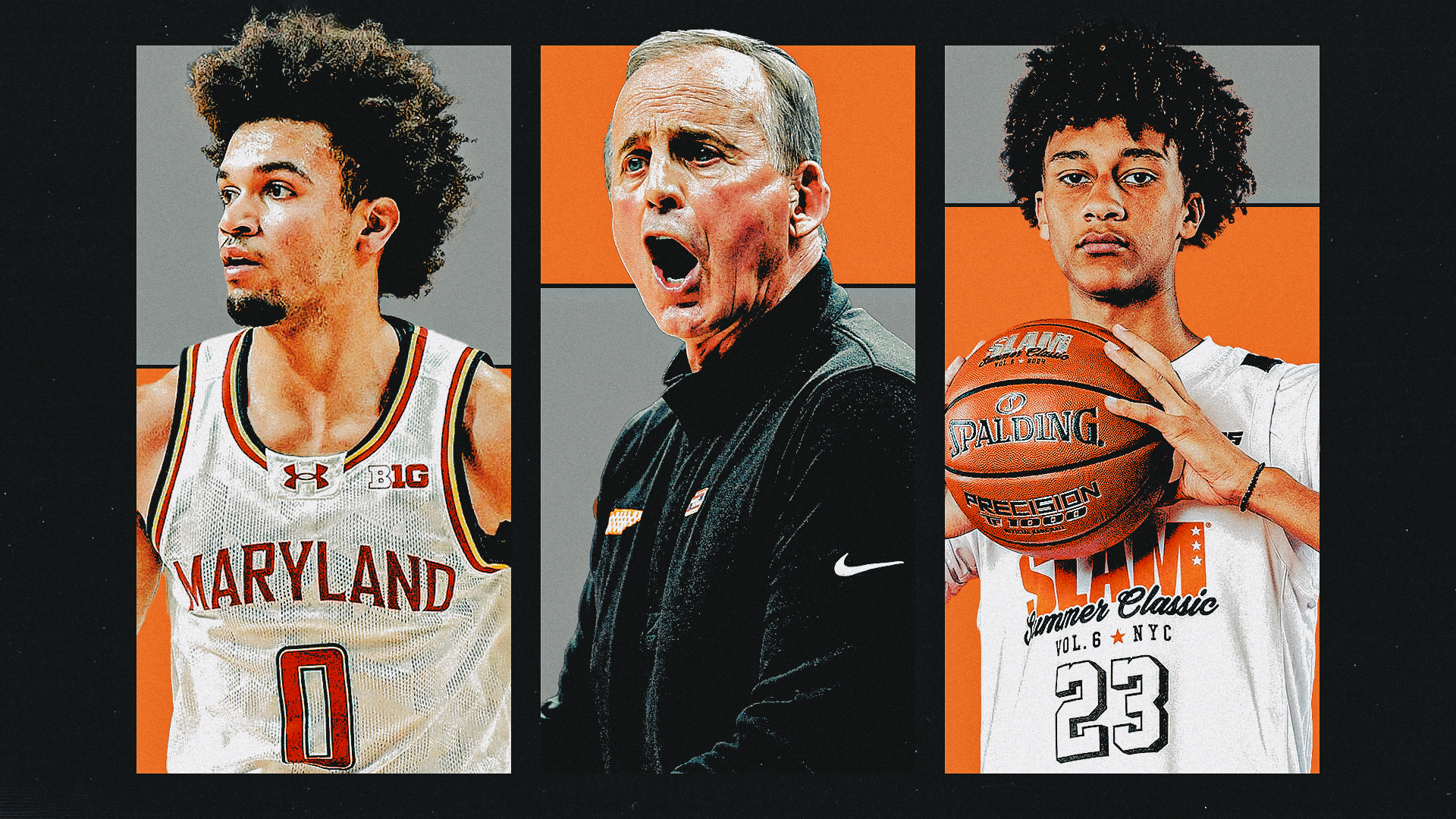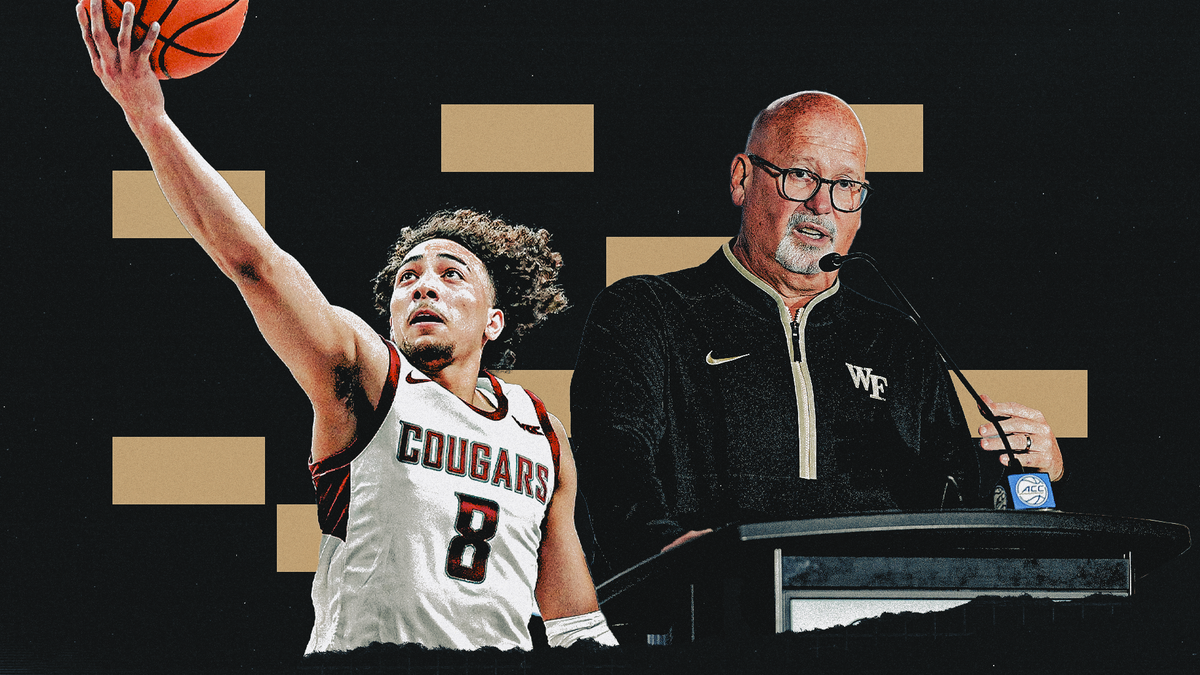There’s a familiar cadence to Tennessee basketball under Rick Barnes. The Vols enter every season ranked, usually in the top 15, sometimes even inside the top 10. They stack wins early, grind through the SEC with one of the nation’s best defenses, and by March they’re a name you can’t ignore on the bracket line. Yet, as reliable as the script has become, there’s always the same hollow refrain when it ends: Tennessee has still never reached a Final Four. It’s the one piece missing from the program’s résumé, and it lingers over everything the Vols do.
Barnes just signed a lifetime contract in Knoxville, essentially ensuring that he’ll retire as Tennessee’s head coach. That’s a statement of trust from the school, but it’s also a challenge. Barnes has delivered a level of consistency few programs outside the bluebloods can match, but the missing breakthrough still hangs overhead. The implicit goal of his tenure now is singular: before he hangs it up, Tennessee wants to be playing in early April.
This year’s team might not be Barnes’ most talented, but it’s one of his most intriguing. The Vols still have their identity—defense, physicality, a frontcourt that can hold up against anyone—but what makes this group different is the presence of a true lead guard. For the first time in years, Tennessee’s best offensive player projects to be its point guard, and that changes everything about what their ceiling might be.
Most conversations about Tennessee’s offense the last two seasons have centered around The Dalton Knecht Role–an off-ball wing whose only job is to score in bunches–given how much the success the current Los Angeles Laker had with the Vols. Knecht’s scoring in 2023-24 and Chaz Lanier’s shooting in 2024-25 helped boost Tennessee’s offense to a point where it was finally a true complement to its defense, resulting in back-to-back Elite Eight appearances.
This season’s squad does not have that highly-regarded transfer wing that can easily slide into that role. Instead, Ja’Kobi Gillespie is the centerpiece. The 6-foot-1, 186-pounder quickly proved he belonged at Maryland, averaging nearly 15 points and five assists per game while shooting over 40 percent from three. He wasn’t just efficient; he was steady, giving the Terps a lead guard who could both organize an offense and finish possessions himself.
Barnes has had great wings and dominant bigs during his time in Knoxville, but it’s been a long time since his best player was the point guard—and the last time that was true was at Texas with T.J. Ford, the engine of his lone Final Four run. That parallel isn’t lost on anyone around the program. Gillespie’s impact goes beyond his numbers.
Barnes’ structured offense can stall when possessions drag late into the clock, and in March, that’s often fatal. Zakai Zeigler’s individual playmaking was crucial in getting Tennessee out of those ruts, but the now-departed point guard’s game had limitations. Gillespie’s game expands on that and gives them a reliable option when the offense breaks down. He has the handle to get to his spots, the vision to find shooters, and the confidence to rise for a jumper if nothing else develops. Tennessee hasn’t always had that, and it’s the kind of presence that can change how you win in March.
Of course, no team makes it through the SEC gauntlet on guard play alone, and Barnes still believes in building from the inside out. That’s where this roster’s frontcourt could be special.
Felix Okpara anchors the middle, bringing size, rim protection, and efficient finishing. He’s the kind of defensive center who makes Barnes’ pressure schemes work because he can erase mistakes at the rim, ranking second in the SEC in block rate a year ago. Cade Phillips returns with experience and toughness, a reliable rotation forward who rebounds and defends without needing touches. And there’s J.P. Estrella, who missed most of last season due to a foot injury but brings size, length and rebounding off the bench.
Those veterans set the floor while a pair of frontcourt newcomers may be the key to raising the ceiling. Nate Ament, a five-star forward ranked No. 4 nationally in the 247Composite, brings something Barnes hasn’t always had: an uber-athletic 6-9 forward who can stretch the floor, put the ball on the floor, and defend multiple positions.
Barnes has landed a handful of one-and-done prospects during his time at Tennessee with players like Jaden Springer, Keon Johnson, Kennedy Chandler and Jaden Springer that came in with high expectations. All were good players in college but none were true difference makers. Ament can be that. His upside is massive, and while you never want to place too much weight on a freshman’s shoulders, his presence gives Tennessee a dynamic wrinkle. He doesn’t need to dominate every night, but there are few players in the country who can match his physical gifts.
Part of Ament’s impact is that he fits almost any lineup Barnes wants to play. Pair him with Okpara and you have rim protection and floor spacing. Pair him Phillips and you can switch more defensively.
Then there are potential pairings with Vanderbilt transfer Jaylen Carey, who might be the swing piece. He averaged eight points and nearly six rebounds per game last season, but his play down the stretch was what caught attention. Carey looked like a different player in SEC play—more confident, more aggressive, and more consistent. He rebounded at a high level, showed flashes of scoring inside, and became an X-factor on an overachieving Vanderbilt team.

If that version of Carey shows up in Knoxville, he could be the kind of glue piece that makes Tennessee’s rotation click. He’s not going to be a star, but Barnes doesn’t need him to be– and Carey doesn’t expect to be. He’s already calling himself Ament’s bodyguard because he believes the freshman is “like a baby Kevin Durant,” who played for Barnes at Texas. If Carey can provide 20 minutes a night of reliable production, to rebound, defend, and hit the occasional shot, Tennessee’s depth chart starts to feel much sturdier.
Depth, though, is where the questions come in. Tennessee has reliable pieces at the top of the rotation, but the back half is filled with uncertainty. Amaree Abram, a transfer from Louisiana Tech, should slot in next to Gillespie as a three-point shooter, floor spacer and capable defender. His shooting numbers last year (37.3 percent from three) suggest he can give Tennessee another perimeter weapon, and his experience makes him less of a gamble. But behind him, things get murkier.
The backcourt bench unit is expected to be sophomore Bishop Boswell, four-star freshman Amari Evans and Ethan Burg, who played for Bnei Herzliya Basket in the Israeli Basketball Super League the last two seasons. All three have upside but are unproven at this level. Getting reliable minutes from two of them is going to be a must.
Still, questions remain. Can Abram and Gillespie hold up defensively the way we’ve come to expect from Tennessee? Can the bench give Tennessee consistent minutes? Will Barnes be able to fully trust a group composed of mostly newcomers? These are not small questions, and they matter because Tennessee’s margin in March is always thinner than it looks in January.
What makes this season fascinating is how the pieces fit together. Despite those defensive questions, Tennessee has answered bigger ones in the past and still posted elite units–the Vols have ranked top five nationally in adjusted defensive efficiency in each of the last five seasons, per KenPom, including four straight in the top three. You trust this coaching staff to figure that out. The challenge is on the other end.
Tennessee’s offense has historically been good enough but not great, ranking between 30th and 60th in adjusted efficiency most years. That’s fine during the regular season where you can grind out wins, but it becomes a liability in postseason play when the single-elimination style of the NCAA Tournament places significant importance on every single possession.
That’s why Gillespie’s presence matters so much, and why Ament’s growth is so important. Barnes doesn’t need this to be the No. 1 offense in the country, but he needs it to be dangerous enough that the defense isn’t wasted. If the Vols can climb into the top 30 offensively while staying elite on defense, the path to a Final Four starts to look very real.
That has been the key. Tennessee has only boasted a top-30 offense three times in Barnes’ 10 seasons at the helm: the first was the 2018-19 team that won the SEC and made the Sweet 16, while the others have been the last two seasons and those Elite Eight finishes.
It’s not Final Four or bust in Knoxville—Barnes’ new contract removes the kind of pressure that phrase implies—but it is the goal. Everyone around the program knows it. The fanbase knows it. Barnes knows it. He’s built Tennessee into a perennial power, but without a Final Four, there will always be an asterisk in the résumé.
The lifetime contract ensures Barnes will be here for however many more shots at history he wants. But if you’re looking for signs of when it might finally happen, this season feels like a unique one that could switch up that familiar Tennessee cadence. Gillespie gives them the kind individual creator they’ve lacked at the lead guard spot. Ament raises the ceiling. The frontcourt is sturdy. Carey could be the surprise piece. And the defense, as always, will travel.
That’s not the profile of a team hoping to survive to the second weekend. That’s the profile of a team swinging for a chance the first Saturday in April. And for Tennessee, that would mean something bigger than just a great season–it would cement Barnes’ place in history.


